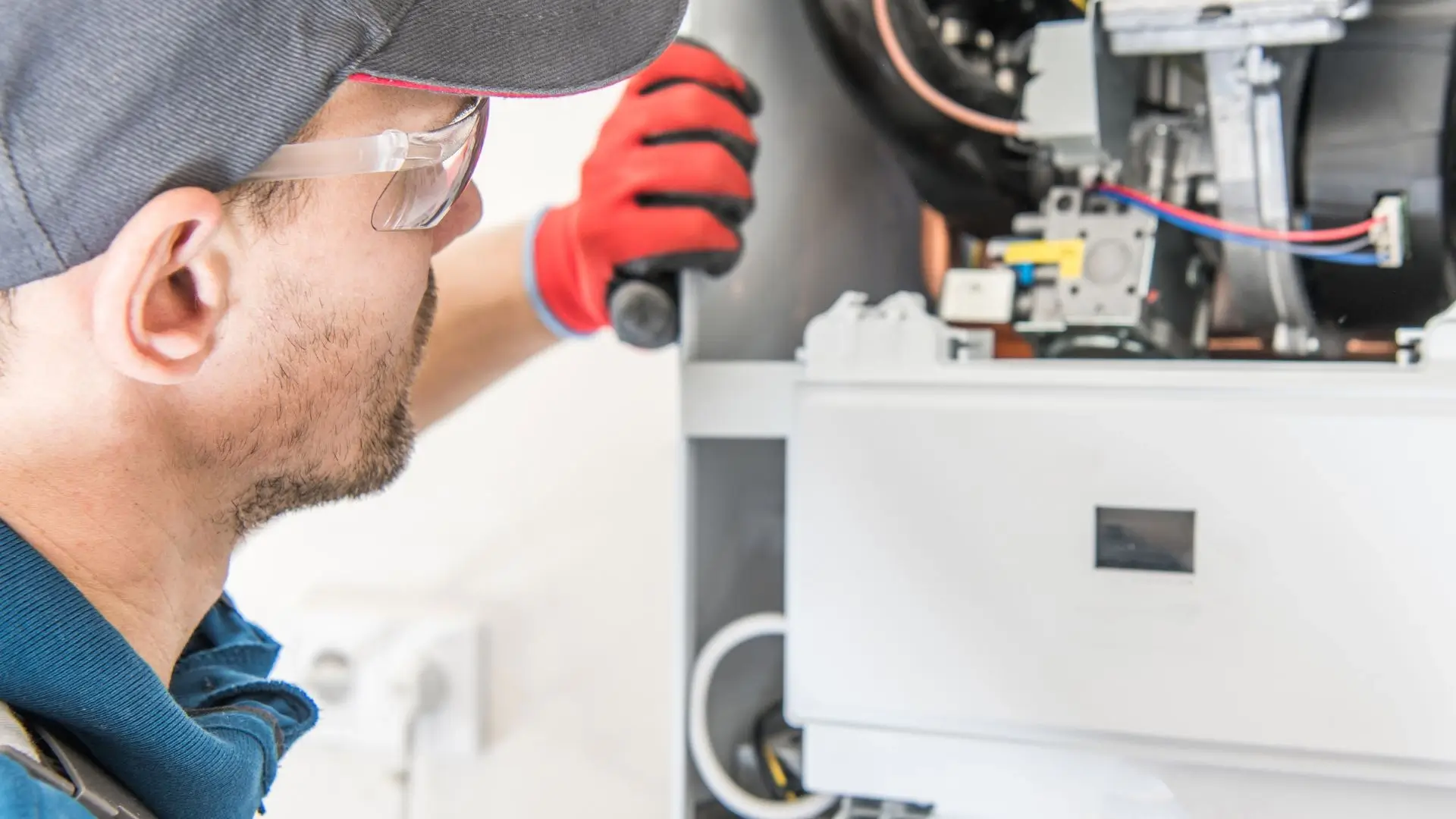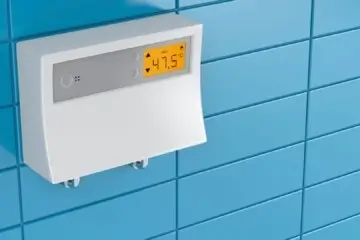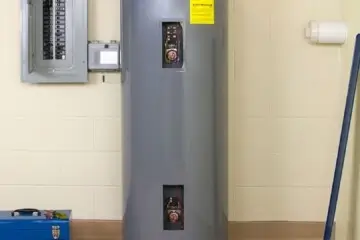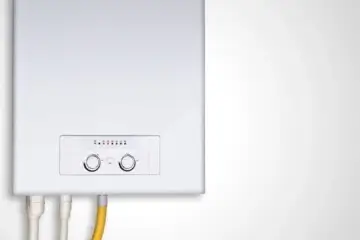Tankless water heaters offer energy efficiency and durability, although the initial installation costs may be higher. They have a longer lifespan compared to traditional tanks, resulting in cost savings over time. Before making a decision, it is important to assess your hot water requirements. These heaters provide instant hot water, reducing wastage. Gas models are suitable for larger households as they offer higher flow rates. Their compact design saves space, making them ideal for modern homes. Consider the advantages in relation to the upfront expense to make a well-informed choice. For more detailed information on tankless water heaters, reach out to our local plumbing company in Mississauga.
Contact CAN Plumbing and Drainage for your Tankless Hot Water Needs
When considering your tankless hot water needs, it’s highly recommended to contact CAN Plumbing and Drainage in Mississauga for expert guidance and installation services. There are pros and cons to installing a tankless water heater. The main advantage is energy efficiency, as these units only heat water when needed, ultimately saving on energy costs. However, it’s important to note that electric tankless units may struggle to provide sufficient hot water for larger households simultaneously. Proper installation and maintenance are crucial to ensure the system functions optimally. CAN Plumbing and Drainage in Mississauga specializes in water heating solutions and can offer the expertise needed to navigate the complexities of tankless water heaters, providing efficient and effective installation and maintenance services. Contact us for your tankless hot water needs.

CAN Plumbing and Drainage Services Related to Tankless Hot Waters
CAN Plumbing and Drainage in Mississauga specializes in the installation and replacement of tankless hot water systems. Our team has the expertise to meet the specific needs of tankless water heaters, ensuring efficient and dependable service for our valued customers. For all your tankless hot water requirements, please don’t hesitate to contact us.
Tankless Hot Water Installations
Installing tankless hot water systems requires specialized plumbing and drainage services to ensure effective and reliable operation. When considering the pros and cons of a tankless water heater, it’s important to factor in the installation cost for gas tankless water heaters or demand-type water heaters. While the initial installation cost may be higher due to the need for professional expertise, the long-term energy savings and continuous supply of hot water often outweigh this initial investment. Proper installation is key to optimizing the system’s performance, providing hot water on demand without the limitations of a traditional water heater. By investing in professional plumbing and drainage services during the installation process, you can maximize the benefits of a tankless hot water system.

Tankless Hot Water Replacements
When it comes to replacing tankless hot water systems for optimal performance and efficiency, plumbing and drainage services are essential. Before deciding on a new tankless water heater, it’s important to weigh the advantages and disadvantages of gas and electric options. Gas heaters typically provide higher hot water output but may involve extra installation steps. On the other hand, electric tankless water heaters are easier to install but could result in higher energy costs in the long run. Assessing your household’s hot water usage is crucial in selecting the most suitable replacement unit. Proper installation of the new system is key to maximizing energy efficiency and ensuring a consistent hot water supply. Consulting with professionals can help you navigate these considerations and make an informed decision.

Lower Energy Bills
Switching to a tankless water heater can result in significant savings on energy bills thanks to their efficient on-demand heating technology. The Department of Energy states that tankless water heaters are more energy efficient compared to traditional tank water heaters, which helps homeowners save money and energy in the long term. Although the initial cost of a tankless water heater may be higher than that of a traditional tank model, the lower utility bills and reduced energy consumption over time can offset the upfront difference. By heating water only when needed, tankless water heaters eliminate standby energy losses, leading to decreased energy bills and a more environmentally friendly water heating option for homes.
Longer Lifespan
When considering tankless water heaters, one significant benefit is their extended lifespan compared to traditional tank water heaters. Tankless water heaters typically last 20 years or more, outlasting the usual 10-15 year lifespan of traditional tank water heaters. This longer lifespan can lead to cost savings over time, as replacements are less frequent. Gas-fired tankless water heaters, in particular, are known for their durable components and longevity. Since tankless water heaters do not store water like traditional tanks, they are less prone to corrosion and leaks, further enhancing their durability. Overall, the extended lifespan of tankless water heaters is a key advantage to consider when evaluating their pros and cons.

Higher Upfront Costs
When considering higher upfront costs, it’s important to take into account the financial investment required for a tankless water heater. Typically, the initial cost of a tankless water heater is higher than that of a traditional water heater. This is a disadvantage that potential buyers should consider. However, it’s crucial to weigh this higher upfront expense against the long-term benefits and savings that a tankless water heater can offer. Factors such as energy efficiency and reduced utility bills should be taken into consideration when deciding if a tankless water heater is suitable for your home. Despite the higher initial cost, many people find that the advantages of a tankless water heater outweigh the upfront investment.
Energy Efficiency
Tankless water heaters are known for their exceptional energy efficiency. They heat water instantly and only when needed, reducing energy wastage compared to traditional water heaters. Whether powered by a gas burner or electricity, tankless water heaters provide hot water on demand, eliminating standby energy losses common in storage water heaters. Electric models are highly efficient, converting almost all energy into heat, while gas models offer higher flow rates and are suitable for larger households. By heating water directly without the need for a storage tank, tankless water heaters offer significant energy savings over time, making them a smart choice for those looking to lower their energy consumption and utility bills.
Space-Saving Design
Tankless water heaters are known for their compact design, eliminating the need for a bulky storage tank like traditional water heaters. This space-saving feature makes them ideal for homes with limited space. By heating water directly when needed, tankless units provide hot water on demand without the requirement for storage. Gas tankless water heaters typically offer higher flow rates than electric models, ensuring a continuous supply of hot water per minute. When considering the installation of a tankless water heater, it’s important to recognize the space-saving advantages it offers and its efficient hot water delivery. The compact design of tankless water heaters is a practical choice for modern homes looking to maximize space utilization.
Frequently Asked Questions About Tankless Hot Water Near Me
Are Tankless Water Heaters Suitable for Large Households With High Hot Water Demand?
Yes, tankless water heaters can effectively meet the hot water demands of large households. They provide a continuous supply of hot water on demand without the need for a storage tank, making them ideal for households requiring a significant amount of hot water. It is essential to ensure that the unit’s flow rate and capacity can handle the household’s peak usage to avoid any issues with inadequate hot water supply.
Can Tankless Water Heaters Be Installed in Older Homes With Existing Plumbing Systems?
Tankless water heaters can typically be installed in older homes with existing plumbing systems. However, it’s essential to ensure that the system is compatible with the home’s electrical capacity and gas line, if applicable. Upgrading the electrical panel or gas line may be necessary to meet the requirements of the tankless water heater. It is highly recommended to have a professional plumber handle the installation to guarantee safety and proper operation.
Do Tankless Water Heaters Require Regular Maintenance or Servicing?
Yes, regular maintenance is necessary for tankless water heaters to ensure optimal performance. This includes flushing the system to prevent mineral buildup and inspecting for any leaks or issues. Scheduled servicing is crucial for extending the unit’s lifespan and preserving its efficiency. Failure to conduct maintenance can result in reduced efficiency, increased energy costs, and potential malfunctions. Therefore, consistent upkeep is essential for the effective operation of tankless water heaters.
Are There Any Government Rebates or Incentives Available for Installing a Tankless Water Heater?
Government rebates and incentives are available for installing a tankless water heater. These programs vary depending on your location and can help offset the initial cost of purchasing and installing a tankless water heater. It’s important to research what rebates or incentives are offered in your area and make sure you meet all the requirements to take advantage of these savings.
How Do Tankless Water Heaters Compare in Terms of Water Pressure and Flow Rate to Traditional Water Heaters?
When comparing tankless water heaters to traditional models regarding water pressure and flow rate, tankless heaters often provide superior performance. Tankless systems heat water on demand, leading to higher water pressure and a consistent flow rate. This can be beneficial for households that need a continuous supply of hot water at multiple outlets simultaneously. However, the specific water pressure and flow rate can vary depending on the model and installation factors.
Please rate our website
Let us improve this post!
Tell us how we can improve this post?


